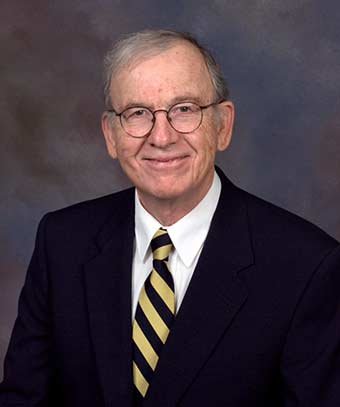Larry Beahan: Conservationist, Physician

Get to know a Buffalonian...
In retirement, Larry Beahan is more active as a writer and committed conservationist than men one third his age. He’s the author of My Grampa’s Woods: The Adirondacks; Allegany Hellbender Tales; North Country; and Adirondack Pulp Fiction, and sits as the Conservation Chairman of the Sierra Club Niagara Group. Lately, he’s been among those keeping a close watch on Allegany State Park, which is coveted more and more by private companies for the fossil fuels buried beneath it.
Why do you think it’s important to preserve natural areas in the public trust?
Corporations operate on the profit principle, generally within the constraints of the law. If they own a natural area like Allegany State Park they have no reason to preserve the capacity of its forest to generate oxygen, to preserve eagles, or to do the things that minimize global warming. Corporations certainly have no reason to provide a natural place for people to enjoy camping and picnicking. So they extract lumber and petroleum and leave a wasteland. When we the people own Allegany, there is a chance we will go for these other potentials.
Drilling for natural gas in the Marcellus shale could mean some income for people in a depressed area of the country. How could that be a bad thing?
Marcellus shale is “tight shale” over a mile deep. You can’t just drill a hole in it and let the methane out like the wells we are used to. You have to pump millions and millions of gallons of water under high pressure into it until it explodes into fractures. This “fracking” water must contain a mix of chemicals to do the job. Many of the chemicals which we know are used in fracking, like benzene, cause cancer. In Pennsylvania one company estimates that hydrofracking uses as much water in the State as does recreation. And the water that returns brings up salt, radon and heavy metals. We do not have enough water purification systems to clean it. Land owners might see a profit out of their Marcellus shale but it would be at the cost of our drinking water.
What’s a Hellbender?
An Allegany Hellbender is the largest of North American salamanders. They are like the little orange newts kids catch down in the Park but these are two-and-a half to three-feet long. They live under rocks in fast-running, clear water and eat crawfish. My friend, George Heron, a former President of the Seneca Nation, told me “Indians thought they were poisonous, had the devil in them.” They are still common in Pennsylvania, Ohio and West Virginia and they are still so ugly you have to love them.
You’re a retired physician, but now you may be best known as a conservationist. Which is easier to treat: people or the planet?
Treating the planet is the same as treating people. Both are a matter of persuading people to act in their own best interest. Treat your wife well, treat the earth well and they will pay you back in kind. Treat them badly and there is hell to pay.
Oil drilling by private companies in the Alleghany National Forest in Pennsylvania now seems to be threatening the waters in Allegany State Park, in New York. Among Federal, State, and private-sector authorities, who should be responsible when things go wrong ecologically?
Given that choice I pick private sector authorities—meaning all of us. We are all responsible. We demand energy to run our cars, our computers, our air conditioners. Gas, oil and coal seemed to do the job inexpensively when we didn’t count environmental costs. Now we are paying those costs in terms of global warming, contaminated drinking water, polluted air and oil-covered shrimp. Collectively we must find other sources of energy and more conservative ways of using that energy. We have to stop beating up Mother Earth before she loses patience entirely and asks for a divorce.
blog comments powered by Disqus|
Issue Navigation> Issue Index > v9n33 (Week of Thursday, August 19) > Larry Beahan: Conservationist, Physician This Week's Issue • Artvoice Daily • Artvoice TV • Events Calendar • Classifieds |









 Current Issue
Current Issue